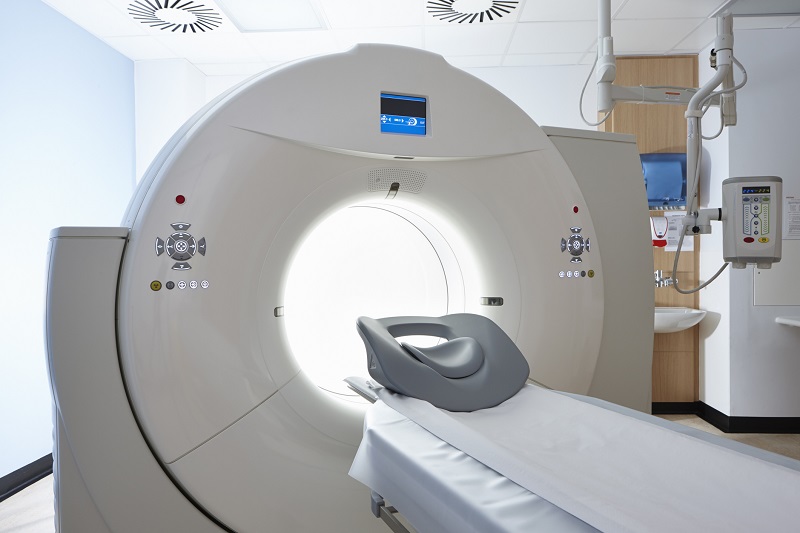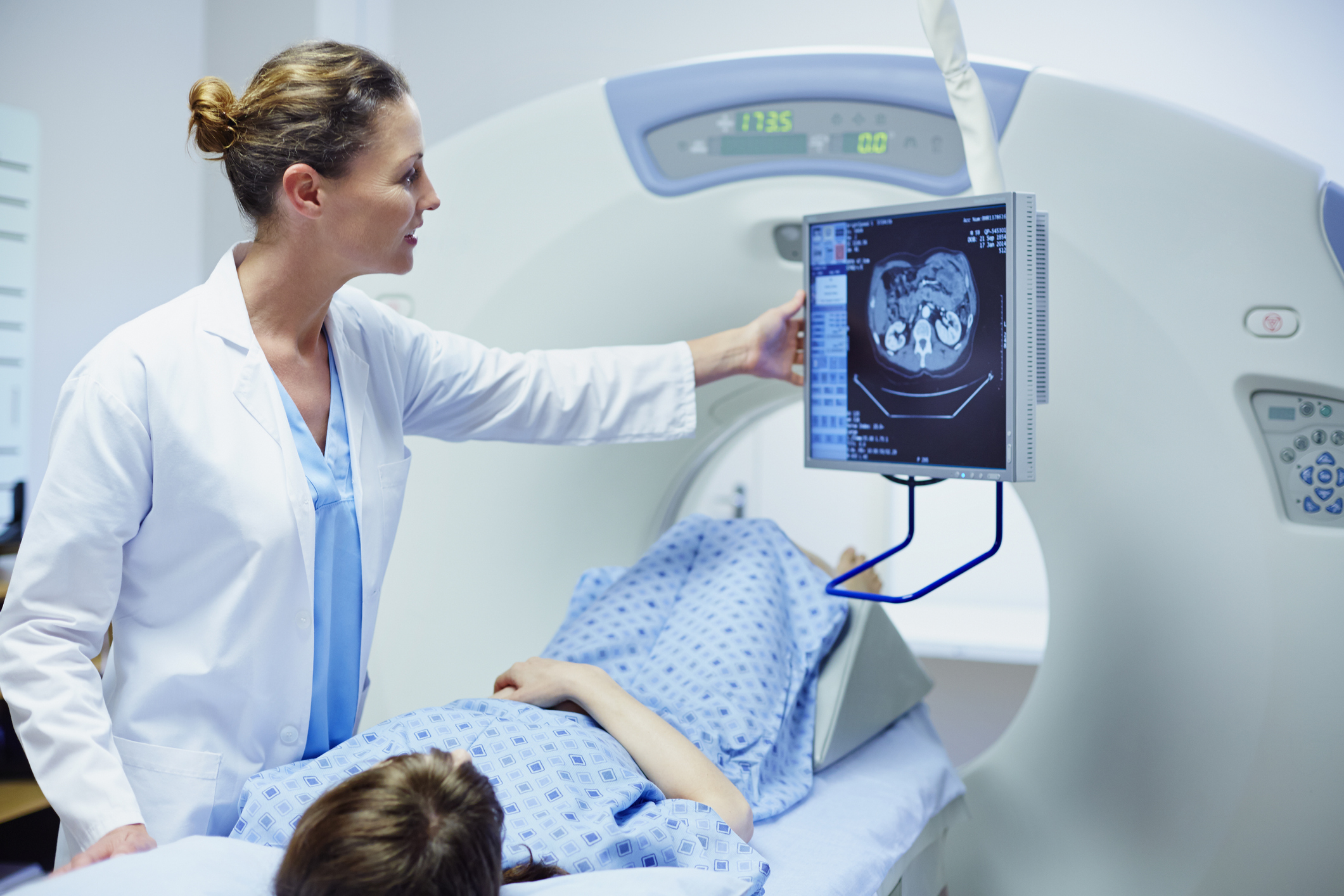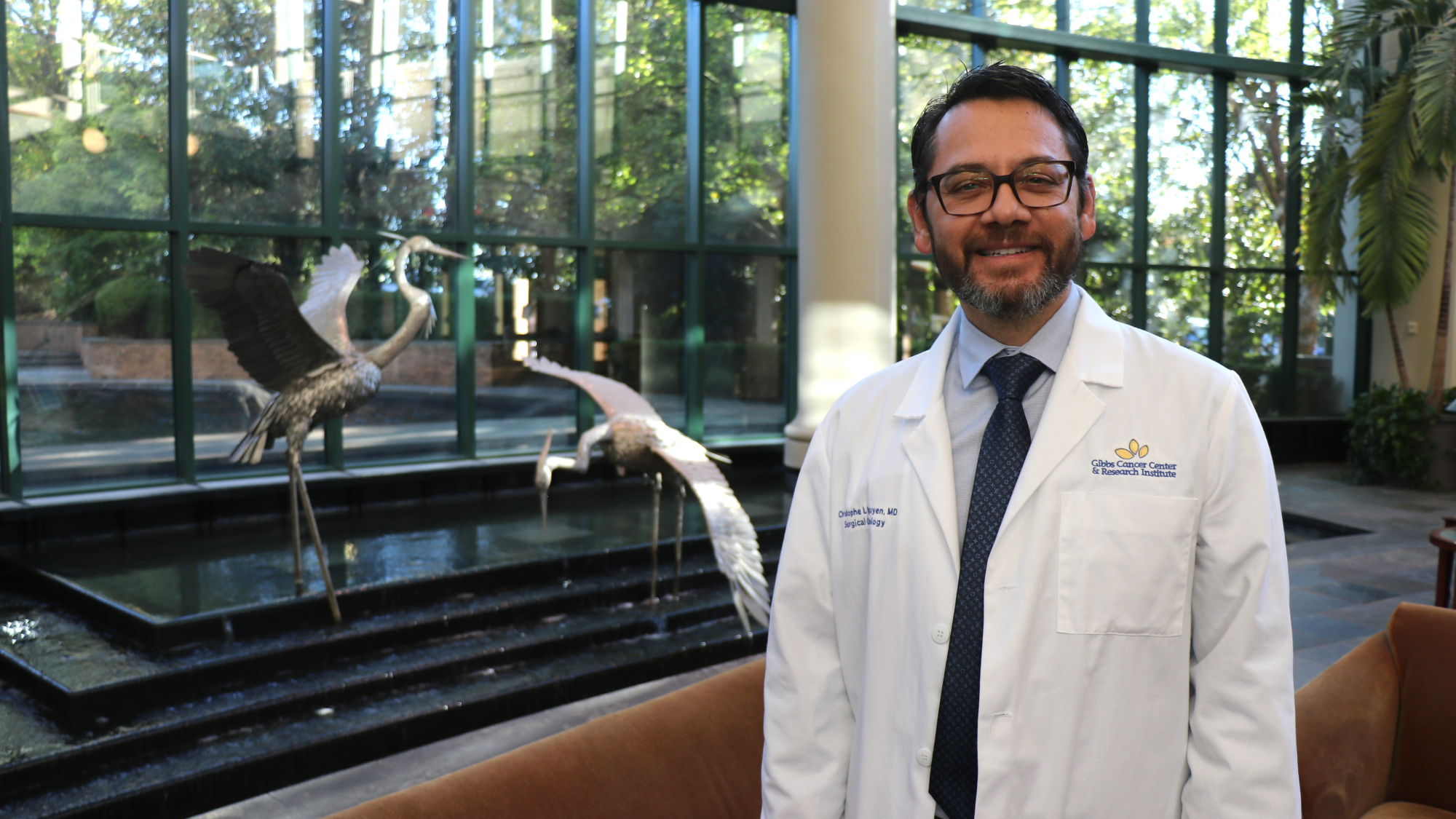
CT Imaging
Computed tomography (CT) creates 3D images of bones, organs, soft tissue and blood vessels. CT scans are a fast, painless way to get potentially life-saving information about injuries, diseases or other conditions.
Low-dose lung CT is one of the only ways to detect lung cancer early, when it’s most treatable.
CT scans are also critical imaging tools to use during traumas because they don’t have the same restrictions as MRIs for people who have metal or certain implanted medical devices.
CT is also integral in PET/CT technology. PET/CT creates images using radioactive tracers to highlight parts of the body, while CT records how the organ or system functions.
How a CT works
CT relies on X-rays which are captured as the machine rotates around the body, creating “slices” called tomographic images. When the slices are stacked digitally, they form a 3D image. Each slice takes only a few seconds to record.
Radiologists and other specialists rotate the 3D image and view it slice by slice to find the exact spot where a medical problem occurs.
Conditions evaluated by CT imaging
CT scans provide valuable information about many conditions, including:
- Abscesses
- Aneurysms in the aorta, chest, abdomen and other arteries
- Appendicitis
- Blood clots
- Brain injuries or skull fractures
- Cancer and the location of tumors
- Crohn’s disease
- Fractures
- Heart disease
- Injuries to internal organs
- Internal bleeding
- Pulmonary embolism
- Sinus conditions
- Skeletal structures
- Spinal fractures and spinal pain
- Strokes
A technologist may administer contrast with an IV to highlight areas, such as the circulatory and digestive systems.
CT images are also helpful tools during some interventional radiology procedures, such as a biopsy or removing fluid from an abscess.
Low-Dose Lung CT
Low-dose lung CT screenings provide hope for people who have risk factors for lung cancer. They are the only recommended screening for lung cancer and can detect it in the early, most treatable stages. Lung CTs are scheduled based on a person’s age and smoking history.
Preparing for a CT
Some people may schedule a CT a month or a year out. Others may be sent the same day as an appointment with a healthcare provider.
In most cases, you will not have to take steps to prepare. Abdominal and pelvis CTs may require that you not eat or drink for four hours before the scan.
If you are scheduled to receive contrast to highlight CT areas, you may need to drink the iodine-based solution a couple of hours before your appointment. IV contrast is effective almost immediately, so that requires less prep time.

Your CT exam
You may be asked to change into a gown depending on the exam. We will also ask you to remove any jewelry, glasses, dentures or hairpins, so they don’t interfere with the image.
During a CT, you will lie on a table that moves into a tube. You may need to hold your breath while the machine snaps an image.
A CT without contrast can be done in 10 minutes. Those with contrast will take longer. Generally, a CT takes 10 to 30 minutes.
Choosing Spartanburg Regional for a CT
At Spartanburg Regional, our compassionate techs understand this may be your first CT or that you may be anxious about a diagnosis. We will be there to explain the steps along the way and support you during your scan.
We also appreciate your busy schedule and offer CT after-hours by appointment at some locations and on the weekends.
At Spartanburg Regional, we place a great emphasis on the experience and qualifications of our techs. All CT techs are certified by the American Registry of Radiologic Technologists, and the American College of Radiology accredits the CT department. Our robust quality control program ensures high-quality studies.
Our techs rotate to different outpatient imaging centers and hospitals, so they are experienced in all types of CT imaging and emergencies.












